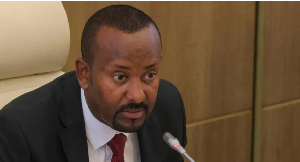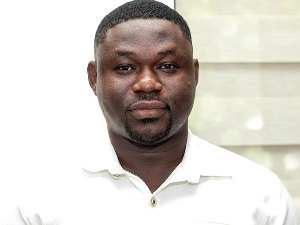Stakeholders in the Greater Accra Metropolitan Area (GAMA), has held a workshop in Senchi in the Eastern Region, to kick-start its Sanitation and Water Project (SWP) for low-income urban areas within GAMA.
The GAMA-SWP is targeted at increasing access to improved sanitation, water supply and to strengthen management of environmental sanitation with emphasis on low-income urban areas within GAMA.
The project includes 10 participating metropolitan and municipal assembly’s (MMA’s) including Accra and Tema Metropolitan Assembly’s, Adenta, Ashaiman, and Ledzokuku-Krowor assemblies.
Others are Ga East, Ga West, Ga South, La Nkwantanang, La Dade-Kotopon and the La Dadekotopon assemblies.
The project is being implemented by the Ministry of Local Government and Rural Development (MLGRD) through its Project Coordinating Council, and the Ministry of Water Resources, Works and Housing through the Ghana Water Company Limited.
Mr Emmanuel Agyapong, Deputy Minister, MLGRD urged stakeholders to inculcate creativity in solving sanitation problems in the area.
“I challenge all of you to help, inspire and generate improvement ideas in dealing with sanitation and water problems,” he said.
He said the project would provide environmental sanitation and water supply services to priority low-income areas with wide hygiene and behaviour change campaigns and improve and expand water distribution network to provide piped water to targeted people living in the GAMA.
The International Development Association Grant sponsored GAMA-SWP has been tasked to do community engagement and mobilisation for hygiene education, provision of improved household toilets and water supply.
It would provide consulting services for the provision of improved institutional sanitation and water supply in selected schools within the MMA’s.
The project would develop GAMA wide plans for liquid and solid waste management and drainage, rehabilitate or construct seepage treatment facilities, and repair dysfunctional local sewerage and waste water treatment systems identified as priorities under the liquid waste master plan.
The Ministry says at the end of the five-year long project, which became effective in August 2014, it is expected to experience a significant reduction in the number of people in Low-Income Urban centres (LIUC) without access to improved sanitation, and also expects to see a significant increase in the number of people in LIUC’s with access to improved water supply.
Also, the MLGRD expects an improved and environmentally sustainable collection, treatment and disposal of waste water and a greater ability of the GAMA/ MMA’s to more effectively and efficiently fulfill their responsibilities with regards to environmental sanitation in the long-term with their own resources.
Regional News of Sunday, 14 June 2015
Source: GNA












